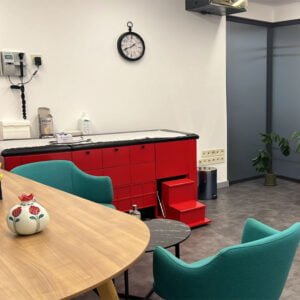This website uses cookies so that we can provide you with the best user experience possible. Cookie information is stored in your browser and performs functions such as recognising you when you return to our website and helping our team to understand which sections of the website you find most interesting and useful.
Food Allergy Test
- Home
- Food Allergy Test

All Inclusive Package Details
5 Star Accommodation
Opportunity to stay in a 5-star hotel in the most beautiful part of Istanbul.
Transfer Services
During this process, our transfer vehicles will be with you on your way to the hotel, clinic and hospital.Hospital
You will feel at home in our hospital that complies with international standards.Expert Allergy Doctors
Get service from doctors who are experts in their fields.
Why Should You Choose Us?
Founded in 2022, CURExplore is a service provider that brings together guests from abroad through medical staff and translators who can speak their own language.
CURExplore, which organizes international patients from all over the world, mostly from Europe to Turkey, is an Istanbul-based health tourism intermediary company that is a member of TURSAB (Association of Turkish Travel Agencies) with the code 14076 and has the Ministry of Health Accreditation.
30-minute free consultation.
After free online consultation, we determine your needs and plan your operation free of charge.
No Surprise Costs
We will not charge you any additional fees.
All Inclusive Packages
5-Star Accommodation, Transfer, Post-Operative Care at the Hotel, Translator, All Processes with You
Fill Out the Form and Get a Personalized Quote
Address
Küçükbakkalköy mah. Merdivenköy Yolu cad. No:12/1 Ataşehir / İstanbulContact Form
Frequently Asked Questions About Food Allergy Test
A food allergy test is a diagnostic tool used to identify potential allergic reactions to certain foods. This test is commonly administered as a skin prick test or a blood test. In a skin prick test, small amounts of potential allergens are applied to the skin to observe reactions. A blood test measures specific allergy-related antibodies in the blood. The results are used to determine which foods cause allergies and the severity of the allergy. Following your doctor's instructions and discussing your test results in detail is crucial for an accurate diagnosis and effective treatment plan. This test can help identify which foods negatively impact your daily life, allowing you to avoid them for a healthier lifestyle.
Food allergy occurs when the body is overly sensitive to certain foods, presenting various symptoms. Common symptoms include itching, redness, and rashes on the skin, often appearing as an immediate reaction to consumed foods. Swelling in the mouth, lips, tongue, and face is also frequent. Swellings usually occur shortly after contact with the allergen and can cause difficulty in eating or speaking. Digestive symptoms like stomach pain, vomiting, and diarrhea are part of allergic reactions as well.
Respiratory symptoms such as difficulty breathing, wheezing, and coughing are serious consequences of food allergies and can be more severe in asthma patients. In rare cases, food allergies can lead to anaphylaxis, a life-threatening reaction requiring prompt intervention. Symptoms of anaphylaxis include a drop in blood pressure, severe breathing difficulty, and loss of consciousness.
Diagnosing food allergy typically involves several steps. Initially, a comprehensive medical history is taken, focusing on your symptoms. Your doctor may suggest various tests to evaluate allergic reactions to specific foods. One such test is the skin prick test, where small amounts of potential allergens are applied to the skin to observe reactions.
Blood tests can also be used, measuring specific antibody levels in your blood to assess your body's response to potential allergens. However, test results alone are not sufficient for diagnosis. Your doctor will combine test results with your medical history and symptoms for a comprehensive assessment. Diagnosing food allergies is a lengthy process, but collaboration is essential to arrive at the correct diagnosis and develop an appropriate treatment plan.
Food allergy treatment typically starts with avoiding allergenic foods. If you have a food allergy, your doctor will first recommend eliminating these foods from your diet. Avoiding allergenic foods is the most effective way to prevent allergic reactions. Reading food labels carefully and being aware of what you eat is crucial to prevent accidental consumption of allergens.
Your doctor may prescribe medications like antihistamines for mild allergic reactions. These medications can alleviate allergy symptoms. For severe allergic reactions, especially those at risk of anaphylaxis, carrying an epinephrine auto-injector (such as an EpiPen) can be life-saving. Quick and effective administration of epinephrine can prevent serious health issues or even save lives.
Controlled food trials may be conducted periodically, especially in children, as some food allergies may decrease or disappear over time. These trials should be done under medical supervision in healthcare facilities. Food allergies can impact your lifestyle but are manageable with proper treatment and precautions. Following your doctor's recommendations is crucial to prevent allergic reactions and maintain a better quality of life. Consult your doctor for any questions about allergic reactions or your treatment plan.
Food allergy testing typically involves two methods: skin prick and blood tests. In a skin prick test, your doctor applies small amounts of various food allergens to your skin, usually on the inner part of your arm. After applying the allergens, your doctor observes the area for reactions. If there's a reaction like redness, blistering, or itching, it indicates a potential allergy to that food.
A blood test measures the level of antibodies produced against specific allergens in your blood. Blood is drawn for the test and analyzed in a laboratory. Although less common than skin prick tests, blood tests may be more suitable in certain cases, especially for individuals with skin conditions or those taking medications that might interfere with skin tests.



























